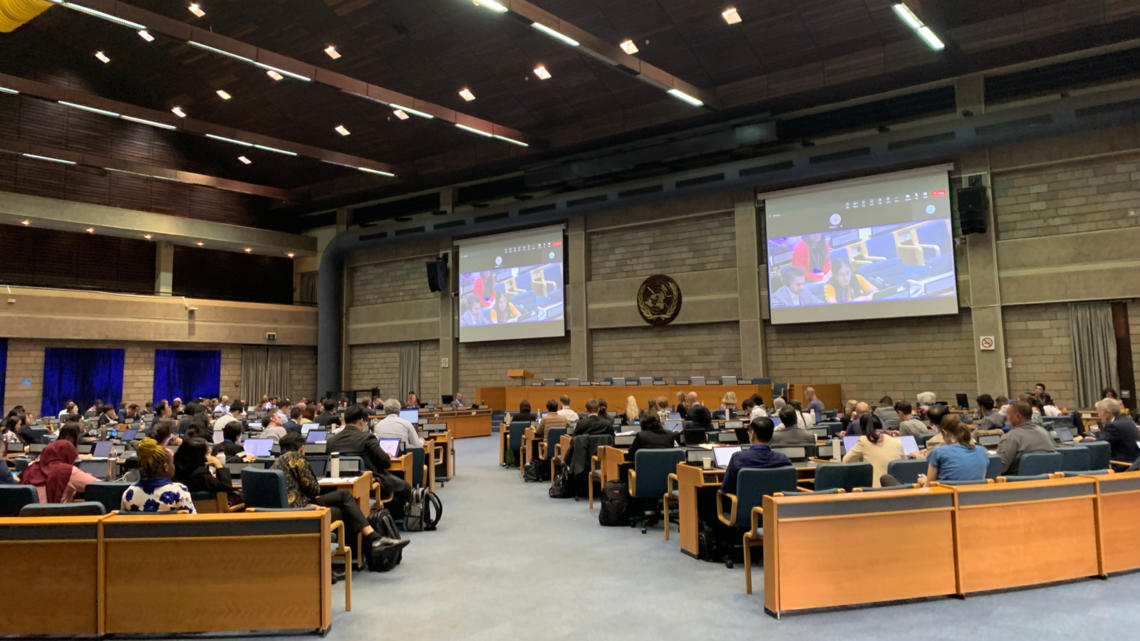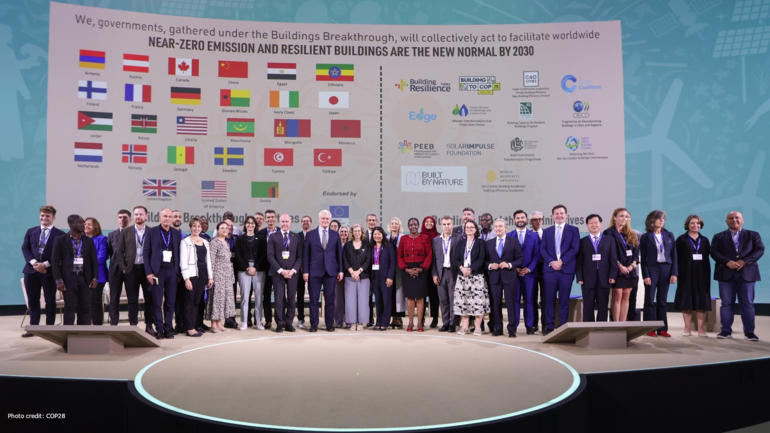Delegates from more than 160 countries came together last week at the UNEP Headquarters in Nairobi to continue discussions on an International Legally Binding Instrument (ILBI) to end plastic pollution. During this third meeting of the Intergovernmental Negotiating Committee (INC-3), countries shared views on what should be included in the zero draft treaty– with topics ranging from plastic production, problematic plastics and product design, to the use of recycled content, Extended Producer Responsibility and waste management. And although the terms are not yet defined, the direction of travel is clear: By the end of 2024, a global treaty will address the full life cycle of plastic, including its production, design and disposal.
Businesses need to begin preparing for compliance and strengthen how they measure and manage both plastic pollution risk and the business opportunities in accelerating circularity. Through their mitigation strategies, companies will need well-developed mitigation plans to help deliver the goals of the ILBI, but without a mechanism to consistently and comparably measure and disclose performance, progress will stall.
A corporate performance and accountability framework is a catalyst for business action
The World Business Council for Sustainable Development (WBCSD) recognizes that a corporate performance and accountability framework is essential for businesses to manage both plastic pollution risk and circularity opportunities along the value chain. Developing the systems and tools for corporate performance and accountability provides clear and aligned guidance for business action and will inform the development of transition pathways alongside the treaty negotiations.
Ahead of INC-3, WBCSD released a paper introducing a global plastics protocol. This protocol for business aims to create global standards for plastic accounting, target-setting and action planning, covering both plastic leakage and circularity. It focuses on three building blocks that will be achieved by working with businesses, partners and stakeholders:
Accounting and assessment: Combining over 60 accounting metrics into two key indicators - plastic footprint and plastic circularity - to evaluate company performance.
Ambition: Providing guidance on developing science-based targets to streamline target setting for plastic footprint and circularity.
Action: Developing standardized frameworks for action to reduce plastic footprint and enhance circularity, along with interim guidance until harmonization is achieved.
Accountability and disclosure on plastics will enable financial flows into circular solutions
For business to make progress to end plastic pollution and transition to circularity, we need policies that create a level playing field. But equally important, we need alignment between capital markets and business. What we at WBCSD call a Corporate performance and accountability system (CPAS) is the critical unlock between the financial market and corporate action – with ties to accountability, valuation and capital allocation.
As part of performance management, business needs to integrate risks related to plastic pollution and opportunities related to a circular economy into decision-making, innovation and strategic planning. Businesses will have to translate the ILBI targets, align their goals with science and then translate these targets into transition plans. Those transition plans will then drive research and development, enhance supply chain collaboration and eventually result in the marketing and sales of sustainable and circular products and services.
In terms of accountability, companies need to prepare to disclose plastic pollution performance information to investors and other stakeholders. Consistent, comparable and high-quality data is key to inform decision-making in the financial sector. This is why CDP is calling for mandatory corporate disclosure on plastic-related risks, dependencies and impacts in the ILBI, as voluntary disclosure is not enough.
Financial markets can use this data to price in plastic pollution risk and circularity opportunities and performance in their corporate valuation models. As a result, capital will flow to the companies and solutions that drive transformation to end plastic pollution and transition to circular economy solutions. UNEP-FI[1] explains the major redirections of financial flows needed to enable the three required market shifts identified in UNEP’s Turning off the Tap report: 1) Reuse: increasing reuse business models, 2) Recycle: increased safe and environmentally sound recycling, and 3) Reorient & Diversify: reorienting and diversifying toward alternative materials and plastics. The ILBI has the potential to send a strong message to Member States with an objective explicitly calling to align financial flows with pathways toward ending plastic pollution.
The Friends of the Action Agenda - an opportunity for business leadership
In Nairobi, the Governments of Samoa, the United States, Norway and Chile – as the ‘Friends of the Action Agenda’ – called for Non-State Actors to take action to help ground the countries’ negotiations with the ‘real’ economy by organizing sectors to deliver a Stakeholder Action Report setting out the current state and opportunity areas and plastic pollution reduction pathways.
The intent is that the ‘Friends of the Action Agenda will pave the way to an aligned multi-stakeholder action agenda similar to the Marrakesh Partnership for climate once the Plastics Treaty is agreed. It will provide a powerful mechanism for business to engage, demonstrate leadership and input into the dialogue. Business has a central role to play in the delivery of a system-wide transformation to end plastic pollution, and the Friends of the Action Agenda allows business to play this role in a credible, accountable and transparent way.
Addressing plastic pollution will take ambitious, broad-based action from all segments of society, public and private. The Friends of the Action Agenda can help build momentum toward the adoption of the ILBI. We must take learnings from the climate action agenda to shape a robust multi-stakeholder agenda that drives effective action based on corporate performance and accountability.
[1] UN Environment Programme Finance Initiative (2023). Redirecting Financial Flows to end Plastic Pollution. Geneva.







